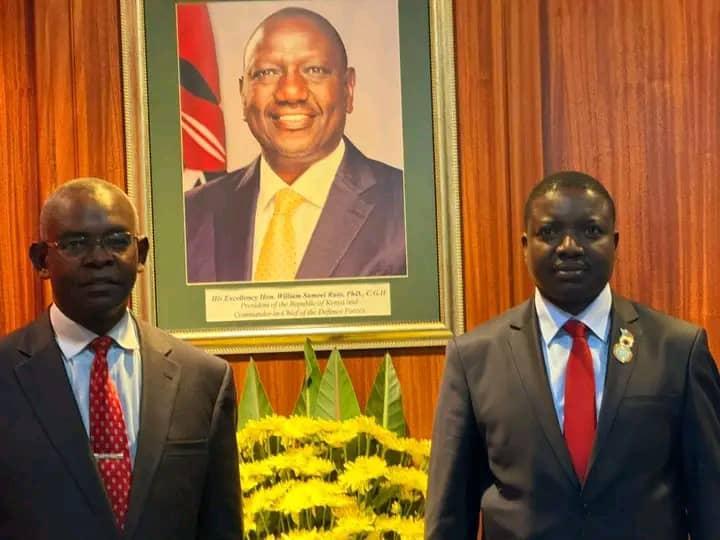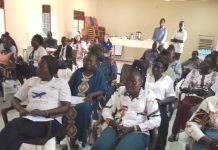John Akoon
Africa-Press – South-Sudan. The governor of the Bank of South Sudan Dr. James Alic held a meeting with his Kenyan counterpart, Dr. Kamau Thugge of the Central Bank of Kenya, to discuss areas of cooperation.
According to a statement issued by the Bank of South Sudan, the duo met at the Central Bank of Kenya (CBK) headquarters in Nairobi on Friday and discussed knowledge sharing between the two institutions.
“A meeting between the Governor of the Bank of South Sudan, Dr. James Alic Garang, and the Governor of the Central Bank of Kenya (CBK), Dr. Kamau Thugge, took place at the CBK headquarters in Nairobi. The visit focused on fostering collaboration and knowledge sharing between the two institutions,” BoSS noted in a statement.
It further stated that the discussion touched on the areas of collaboration for developing the South Sudan banking system where Dr. Thugge expressed willingness to offer support in capacity-building.
“He offered [to do] capacity building or training on modernisation policy and bank structuring system to assist South Sudan in strengthening its financial institutions,” it added.
It added that Dr Alic, who also serves as the chair of the East African Community Monetary Affairs Committee (MAC), stressed that their meeting focused on “strengthening between the two central banks.”
“He (Alic) pinpointed key areas where technical assistance is needed, particularly in bank restructuring, liquidity management, and forecasting,” he added.
The country’s economy faces bottlenecks, which the South Sudanese government blames on the Sudanese war that has harmed oil pipelines and the country’s oil sector, the main source of revenue income.
This caused the country to struggle with an economic meltdown seeking more funds from the International Monetary Fund for the government to address “balance payment challenges and boost economic growth.”
Speaking during the African Development Bank’s annual meetings held in the Kenyan capital, Alic lobbied for support of $250 million of financing from the International Monetary Fund (IMF).
“The funding will address issues such as economic growth, inflation, distribution of resources in the country, education, and health,” Alic said.
He added that the Sudanese war has caused damage in the pipeline carrying two-thirds of crude, and the repairing processes have been delayed, emphasising that despite the government’s efforts to rely on non-oil revenue collections, it was still not helpful.
Source: The City Review South Sudan
For More News And Analysis About South-Sudan Follow Africa-Press






